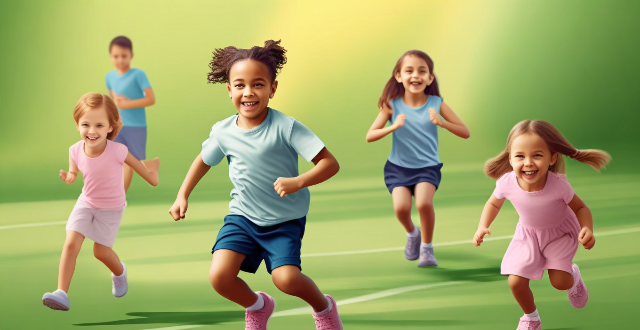Participating in sports education is essential for a child's development as it teaches valuable life skills such as teamwork, perseverance, and discipline. Parental support in children's sports education is crucial as it encourages physical health, fosters emotional well-being, promotes social development, instills lifelong habits, and supports academic performance. By encouraging participation in sports, parents play a significant role in their children's overall development.

Importance of Parental Support in Children's Sports Education
Participating in sports education is a crucial aspect of a child's development. It not only helps them stay physically active but also teaches them valuable life skills such as teamwork, perseverance, and discipline. As parents, it is essential to support your children's participation in sports education for several reasons:
Encourages Physical Health
- Promotes Physical Fitness: Regular physical activity through sports helps children maintain a healthy weight, strengthens their bones and muscles, and improves cardiovascular health.
- Prevents Childhood Obesity: With the rise of sedentary lifestyles, supporting sports education can help combat obesity by encouraging an active lifestyle from a young age.
- Develops Motor Skills: Participation in sports enhances hand-eye coordination, balance, and overall motor skills development.
Fosters Emotional Well-being
- Boosts Self-esteem: Achieving goals and improving skills in sports can significantly boost a child's self-confidence and self-worth.
- Reduces Stress: Engaging in physical activities releases endorphins, which act as natural stress relievers, contributing to better mental health.
- Teaches Emotional Control: Sports provide a platform for children to learn how to handle emotions like frustration and disappointment in a healthy manner.
Promotes Social Development
- Encourages Teamwork: Sports education emphasizes the importance of working together towards a common goal, teaching children the value of collaboration and cooperation.
- Builds Friendships: Through shared experiences and common interests, children often form strong bonds with their teammates.
- Teaches Social Skills: Interacting with coaches, teammates, and opponents helps children develop communication skills and learn how to interact positively with others.
Instills Lifelong Habits
- Cultivates Discipline: The structure of sports education requires commitment and dedication, helping children develop discipline that extends into other areas of their lives.
- Encourages Perseverance: Overcoming challenges and setbacks in sports teaches children resilience, an invaluable quality that will serve them well throughout their lives.
- Promotes Lifelong Physical Activity: Early exposure to sports can create a habit of regular exercise, leading to a lifetime of health benefits.
Supports Academic Performance
- Improves Concentration: Regular physical activity has been linked to improved focus and concentration, which can have a positive impact on academic performance.
- Enhances Time Management: Balancing sports commitments with schoolwork teaches children effective time management skills.
- Stimulates Brain Function: Exercise stimulates neural growth, improving cognitive function and memory—benefits that can enhance learning capabilities.
In conclusion, parental support in children's sports education is vital for their overall development. By encouraging participation in sports, parents play a significant role in fostering their children's physical health, emotional well-being, social skills, lifelong habits, and even academic success.